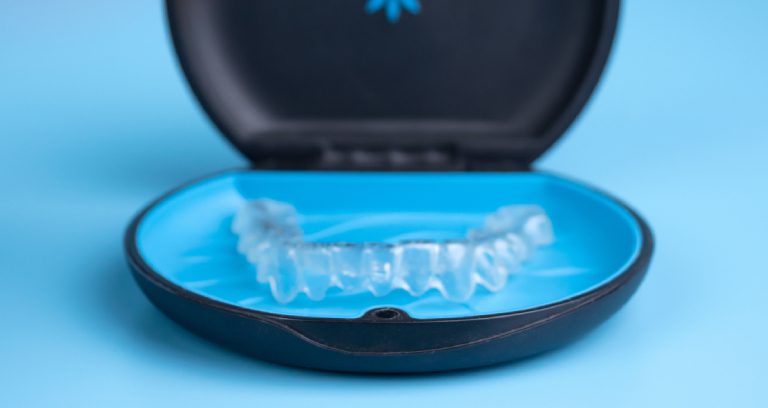Nightguards
Occlusal Nightguards for Bruxism
Occlusal Nightguards for Bruxism
At Freels Orthodontics, we offer occlusal nightguards to patients with sleep bruxism. If you’ve ever woken up with a sore jaw, tooth pain, or a headache, then you know the struggle of sleep bruxism. The American Dental Association estimates that it affects 10-15% of adults, and children can experience it too. Because it happens in your sleep, stopping it can be very difficult, but one way to protect your teeth from the damaging effects of grinding is to wear a custom nightguard.
How a Nightguard Helps
Occlusal Nightguards Versus Retainers
Cleaning and Storing Your Nightguard
Just like our teeth, a nightguard will accumulate bacteria, plaque, and tartar over time unless it is cleaned. We keep it from building up on our teeth by brushing and flossing, and we have to clean occlusal nightguards regularly too or they will soon become filmy, cloudy, foul-tasting, smelly, and covered in white spots. Always rinse your nightguard after you take it out, then brush it with your toothbrush (but no toothpaste, which is too abrasive for the plastic material) and an antibacterial handwash.
Daily cleanings can only do so much, however, which is why it’s important to give your nightguard the occasional deep clean to keep it good as new. Make a mixture of water and baking soda or water and vinegar or just use hydrogen peroxide. Simply soak the nightguard for a few minutes, then rinse it and let it dry. Never use hot water or harsh chemicals like bleach.
Unlike braces, occlusal nightguards are only part-time orthodontic appliances, so storage is important. Harmful bacteria thrive in warm, damp enclosed environments — such as the inside of a closed case. Keep your nightguard somewhere safe and cool where it can dry fully between uses. (That’s also how you should store your toothbrush.) Make sure to get directions before heading our way.



